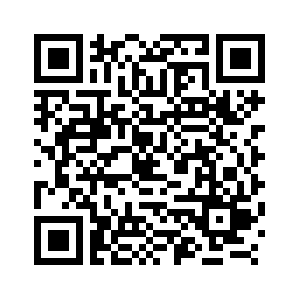WASHINGTON, July 20 (Xinhua) -- Former U.S. National Security Advisor John Bolton's recent admission that he had helped plan coups in other countries is a typical example of America's hegemonic thinking and power politics that have undermined world peace and stability.
STARTLING CONFESSION
"The United States has indeed sponsored and participated in lots of coups and foreign government overthrows, dating back to the turn of the 20th century," American journalist and author Jonathan M. Katz wrote in a newsletter.
"Bolton was personally involved in many of the recent efforts -- in Nicaragua, Iraq, Haiti, and others," Katz wrote. "Generally, officials do not admit that sort of thing on camera."
Bolton's confession was made in a CNN interview with Jake Tapper last week on the investigation by a U.S. House of Representative select committee of the Jan. 6, 2021, Capitol riot, saying that he disagrees with the premise that then outgoing President Donald Trump attempted a coup.
"As somebody who has helped plan coup d'etat, not here but other places, it takes a lot of work, and that's not what he did," said the neoconservative former diplomat who refused to go into specifics but mentioned the U.S. government's efforts to back the opposition in Venezuela in 2019.
In a different interview with Newsmax later, Bolton doubled down on his comments, saying: "This is something that some of the snowflakes on the left were kind of shocked at. But when you're looking out for America's best interests, you do what's necessary to protect those interests."
U.S. OBSESSION WITH "REGIME CHANGE"
"Regime change" has been an integral part of U.S. foreign policy for more than 100 years, former New York Times correspondent Stephen Kinzer wrote in his book Overthrow: America's Century of Regime Change from Hawaii to Iraq.
Starting with the overthrow of the Hawaiian monarchy in 1893 and continuing through the Spanish-American War and the Cold War and into our own time, the United States has not hesitated to overthrow governments that stood in the way of its political and economic goals, according to a summary of Kinzer's book.
It was widely reported that Trump repeatedly raised the possibility of invading Venezuela in talks with top White House aides in 2017. Speaking to Newsmax, Bolton called the attempted overthrow of Venezuelan President Nicolas Maduro "a good example" of a coup d'etat.
Last week, Venezuela's National Assembly voted unanimously to condemn Bolton's comments. "This confession is more proof in a long list of actions and direct attacks by U.S. imperialism against the free peoples of the world," Venezuelan lawmaker Pedro Infante said.
Lindsey A. O'Rourke, an assistant professor at Boston College, wrote in her book Covert Regime Change: America's Secret Cold War that the United States engaged in 64 covert attempts and six open attempts at regime change between 1947 and 1989.
OBSESSION UNCHECKED DESPITE END OF COLD WAR
America's acts of regime change remain unchecked even after the end of the Cold War. Over the past few decades, the U.S. government has fostered political unrest in Latin America, played a part in the "Arab Spring," and instigated "Color Revolutions" in Europe and Asia.
In Latin America, the United States continues to meddle in the domestic affairs of countries in the region under the "Monroe Doctrine."
It is hypocritical for the United States to "insist that we do not accept the principle of 'spheres of influence,'" U.S. Senator Bernie Sanders wrote in an article published earlier this year.
"For the last 200 years our country has operated under the Monroe Doctrine, embracing the premise that as the dominant power in the western hemisphere, the United States has the right to intervene against any country that might threaten our alleged interests," Sanders decried. "Under this doctrine, we have undermined and overthrown at least a dozen governments."
DESPICABLE DEEDS IN MIDDLE EAST, SURROUNDING RUSSIA-UKRAINE CONFLICT
Washington has also wantonly interfered with the affairs of the Middle East, waged wars, and imposed unilateral sanctions in the region, leading to massive civilian deaths and displacement of refugees.
As to the Russia-Ukraine conflict, it was the United States that has made waves by driving five rounds of NATO's eastward expansion and plotting "Color Revolutions" in Russia's periphery.
The United States has financed non-governmental organizations "that essentially are there to destabilize countries," according to Alfred de Zayas, professor of international law at the Geneva School of Diplomacy and former United Nations independent expert on the promotion of a democratic and equitable international order.
"But as an American, I must say I feel vicariously responsible for what my government is doing. And I have enormous sympathy, enormous compassion for the people of Ukraine who have been used in this geopolitical game," de Zayas said.
Bolton, 73, was undersecretary of state for arms control and international security affairs before becoming U.S. ambassador to the United Nations in 2005 under then President George W. Bush. He was a major supporter of the 2003 invasion of Iraq.
Evo Morales, former president of Bolivia, tweeted that the remarks from Bolton showed that the United States was "the worst enemy of democracy and life."
Maria Zakharova, a spokesperson for the Russian Foreign Affairs Ministry, has called for an international investigation into the comments. ■



